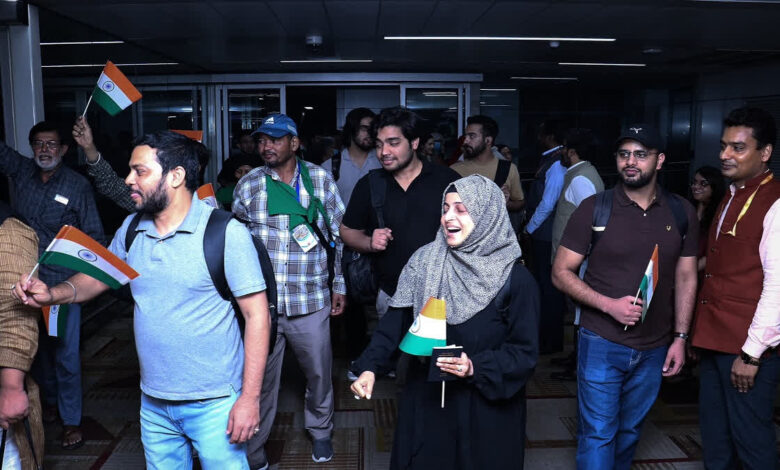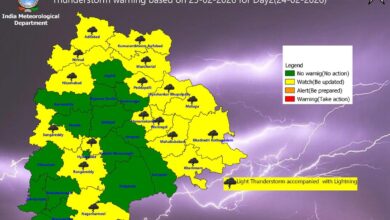
New Delhi | IP News
India’s Ministry of External Affairs (MEA) has significantly intensified its efforts under Operation Sindhu, evacuating over 1,428 Indian nationals from conflict-hit Iran and Israel over the past week. With the situation in West Asia deteriorating following the U.S. strike on Iran and escalating Israeli air raids, India is focusing on swift, multi-route evacuations to ensure the safety of its diaspora.
🇮🇷 Evacuations from Iran Continue
On June 22, a special flight carrying 311 Indian nationals from Mashhad, Iran, arrived in New Delhi. This is the fifth evacuation flight from Iran, raising the total number of evacuees under Operation Sindhu to 1,428.
According to MEA, three more flights are scheduled in the next few days from Tehran, Shiraz, and Isfahan. A large majority of evacuees are students and pilgrims, including many from Kerala and Uttar Pradesh.
Iran has permitted India to use its airspace and airports despite regional instability. In a gesture of humanitarian diplomacy, India is also preparing to evacuate Nepali and Sri Lankan nationals stranded in Iran.
🇮🇱 Indians Exit Israel via Jordan
From Israel, the first batch of 160 Indian nationals crossed into Jordan via the Sheikh Hussein Bridge on June 22. They are currently being processed in Amman, with repatriation flights expected to take off within the next 24–48 hours.
Officials confirmed that around 2,000 Indians, including professionals and students based in Tel Aviv, Haifa, and Jerusalem, have registered for evacuation. Due to ongoing missile alerts and air defense deployments in northern Israel, safe transport to exit points remains a logistical challenge.
Broader Humanitarian Coordination
Operation Sindhu has also extended help to citizens of Nepal and Sri Lanka, showcasing India’s commitment to regional solidarity. The MEA is working with Indian embassies in Amman, Tehran, and Tel Aviv to ensure visa waivers, emergency travel documents, and medical aid are available at all processing points.
India has maintained a neutral diplomatic posture on the Israel-Iran conflict, focusing on citizen safety, humanitarian support, and energy security amid fears of global oil market disruption. Analysts suggest Operation Sindhu could set a new benchmark for multi-country evacuation missions in geopolitically sensitive zones.



